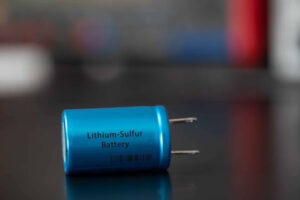APPLICATIONS OF TECHNOLOGY:
- Battery and EV manufacturers
BENEFITS:
- Low cost and more environmentally friendly method
- Low temperature performance
- Decreased polysulfide dissolution and increased lithium metal stability
- High ionic conductivity
BACKGROUND:
Lithium-sulfur batteries (LSBs) are emerging as a promising alternative to lithium-ion batteries (LIBs) due to their exceptionally high theoretical capacity and energy densities with values 3-5 times greater than conventional LIBs. However, despite extensive research efforts on LSBs, there are still challenges with the battery’s stability. Some of the main problems being the incompatibility with traditional LIB electrolytes causing polysulfide shuttling which rapidly decreases energy capacity and sulfur’s insulating electronically insulating properties.
TECHNOLOGY OVERVIEW:
Researchers at Berkeley Lab have developed a material composition and synthesis process for low cost fluoro-free electrolytes for LSBs. These electrolytes enhance stability toward Li-metal deposition, and reduce polysulfide dissolution. The electrolytes are compatible with lithium and sodium batteries and exhibit twice the ionic conductivity over traditional lithium-ion electrolytes across a wide temperature range.
DEVELOPMENT STAGE: Component and/or system validation in laboratory environment
PRINCIPAL INVESTIGATORS: Gao Liu
IP Status: Patent pending
OPPORTUNITIES: Available for licensing or collaborative research
